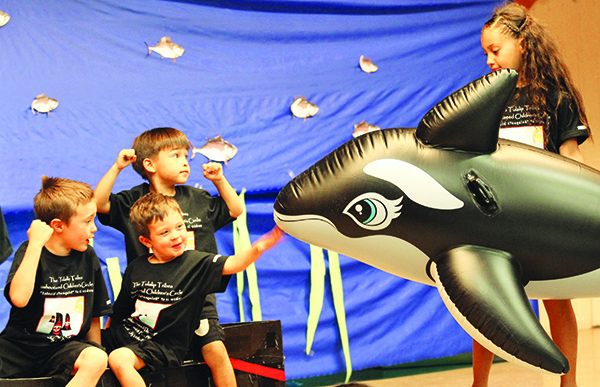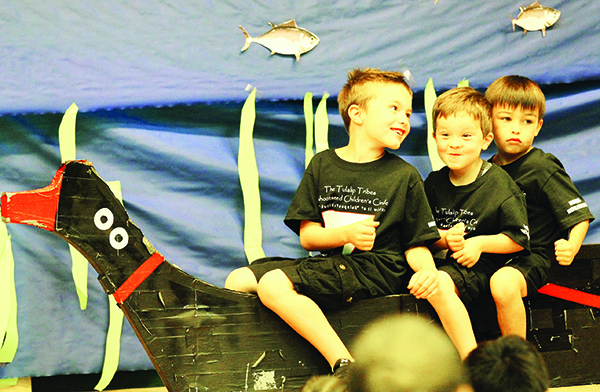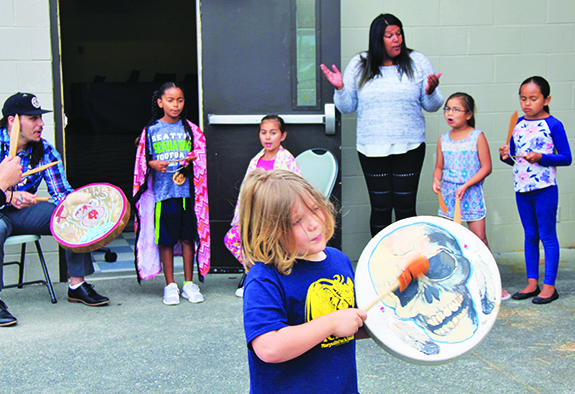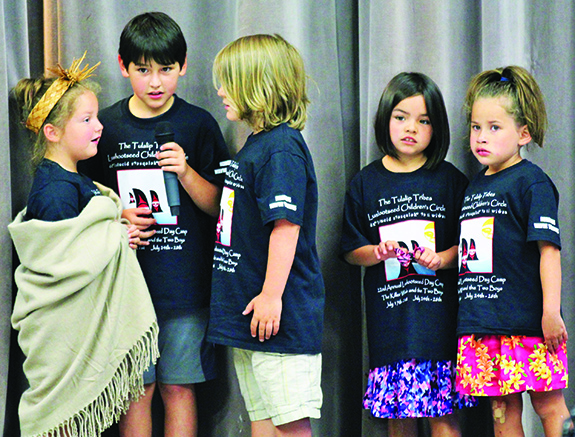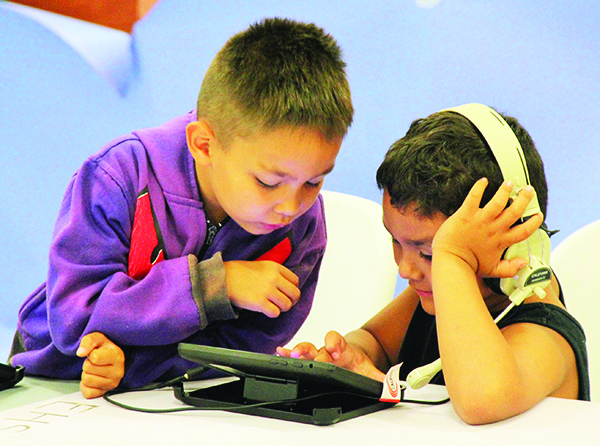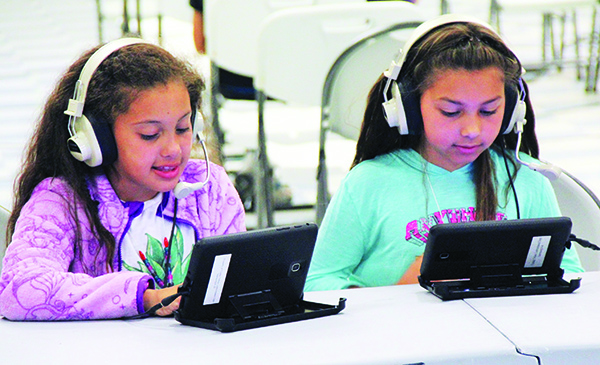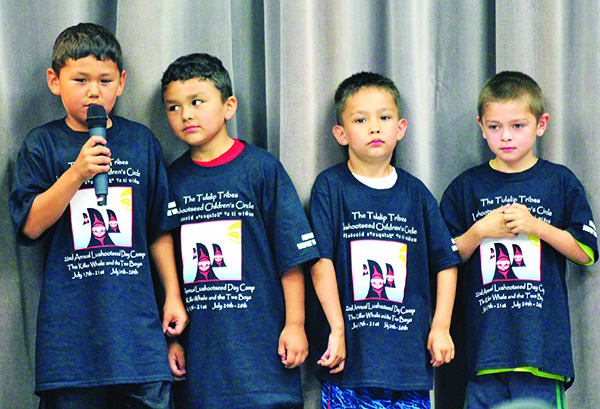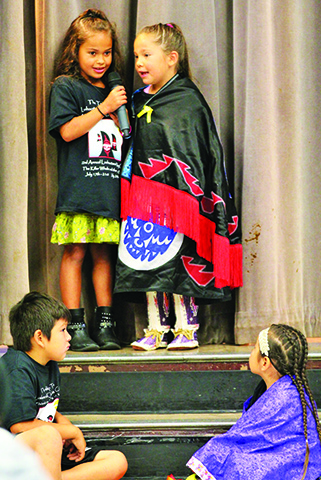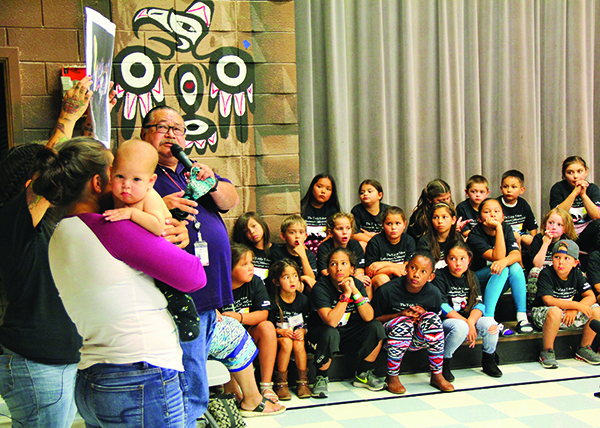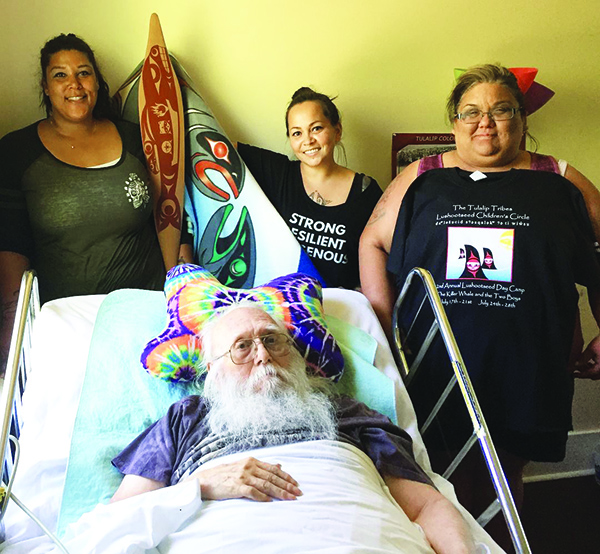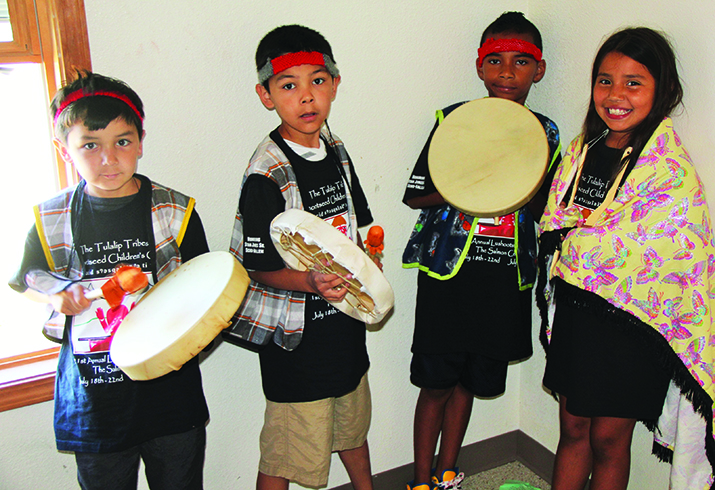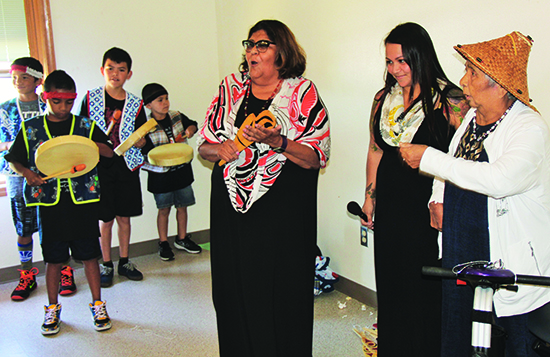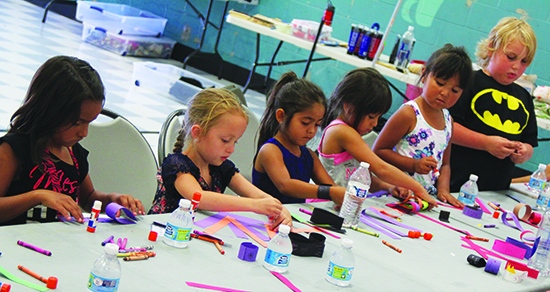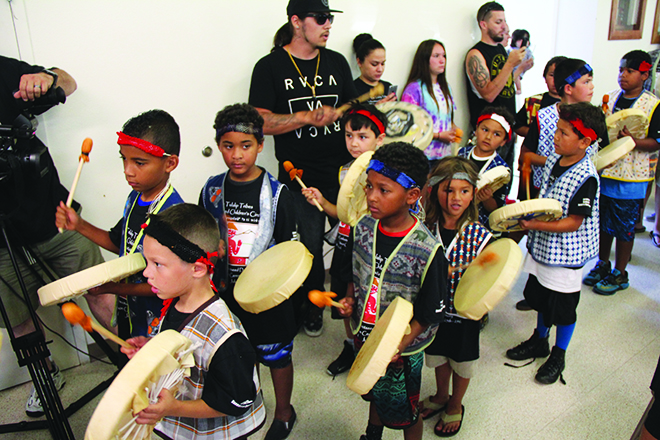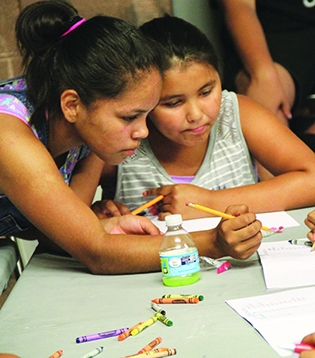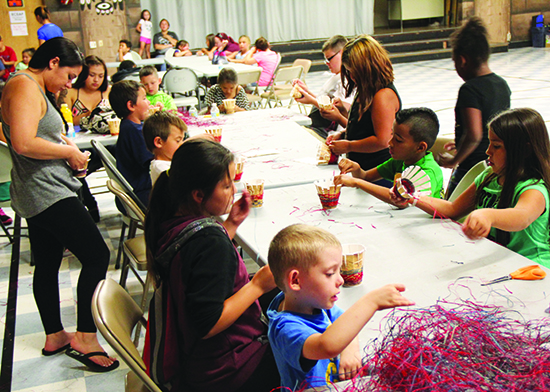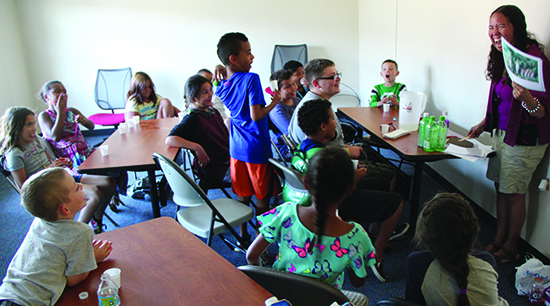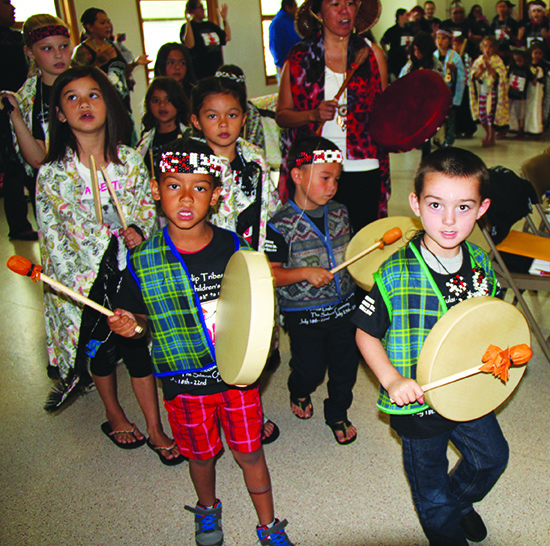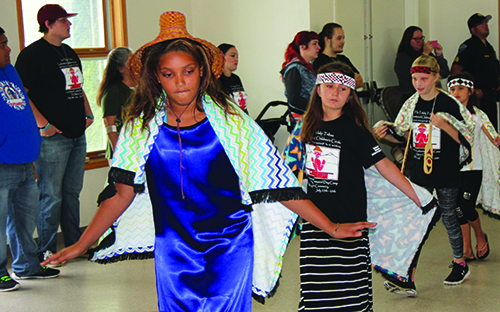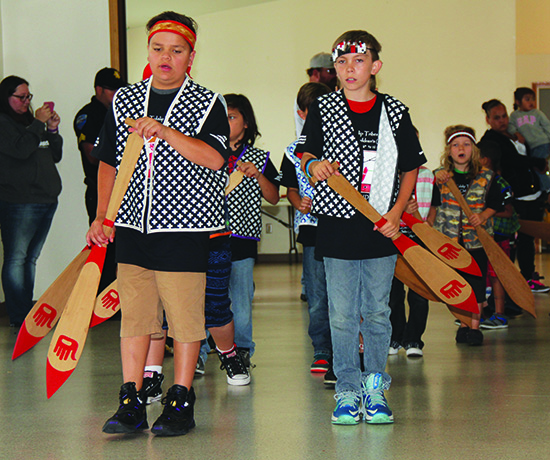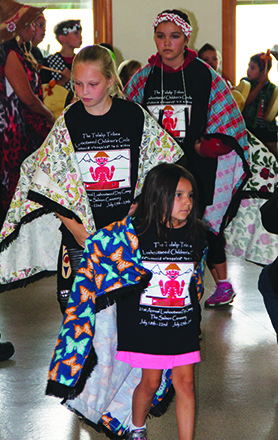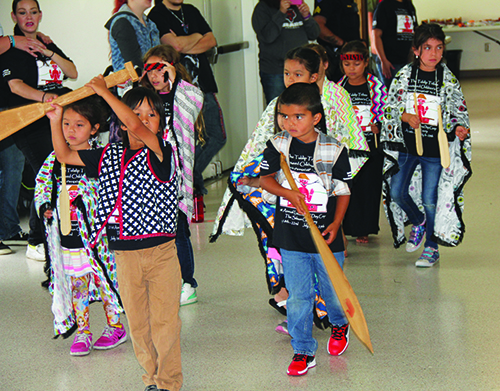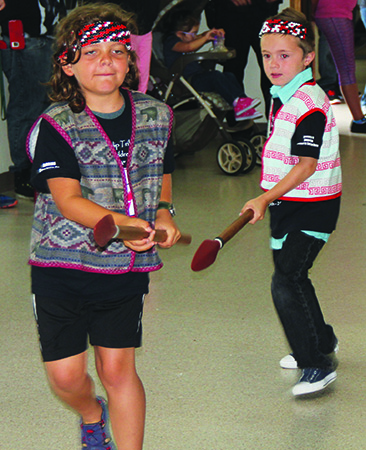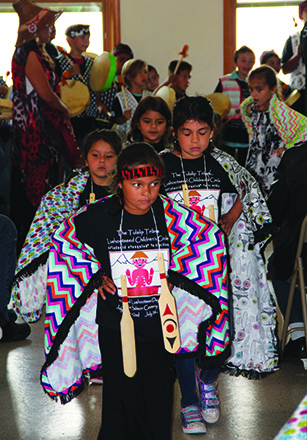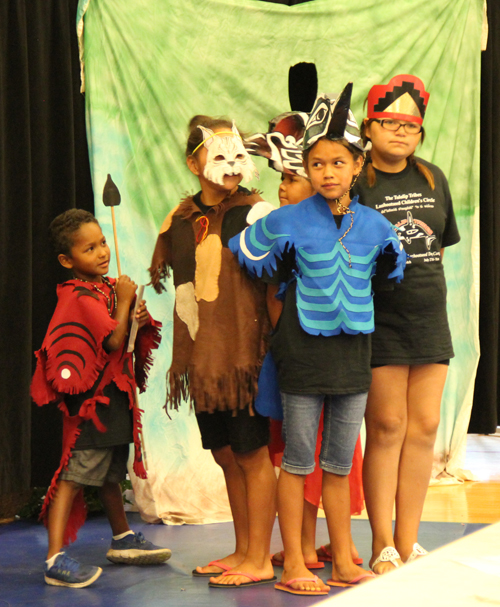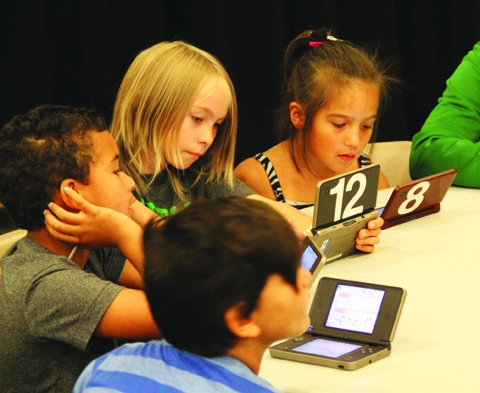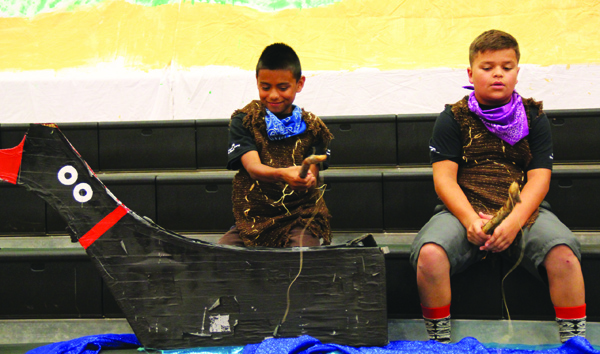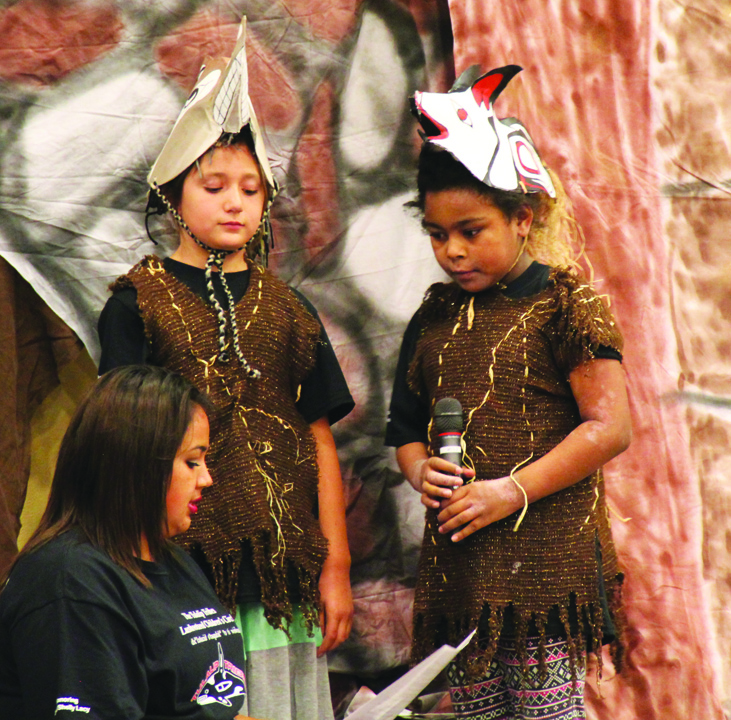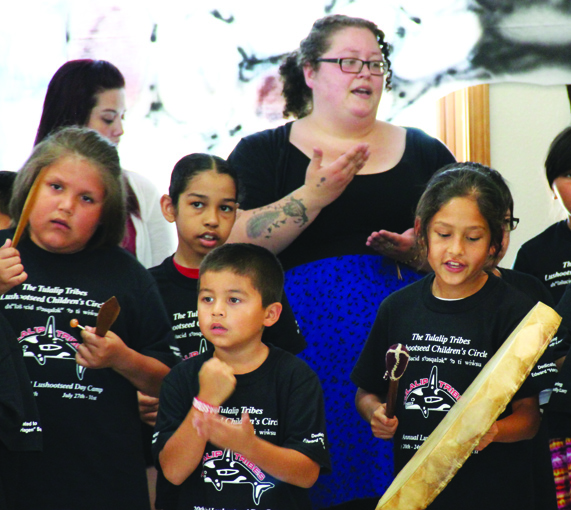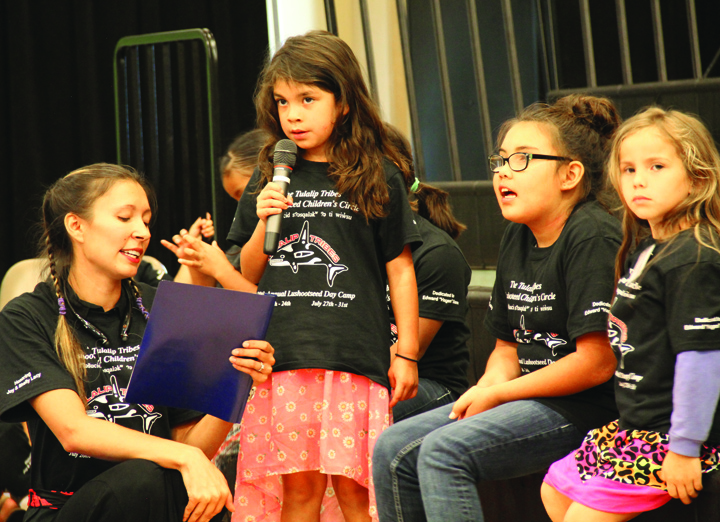22nd Annual Lushootseed Day Camp
By Micheal Rios, Tulalip News
The week of July 24-28 was nothing but pleasantly warm and sunny summer days in the Pacific Northwest. Inside the old Tulalip Elementary gymnasium even more radiating beams of sunshine could be found, created by the record turnout 92-kids participating in week two of the 22nd Annual Lushootseed Day Camp.
Open to children age five to twelve who want to learn about their culture and the language of their ancestors, Lushootseed Camp provides invaluable traditional teachings through art, songs, technology, weaving and storytelling. Each year the Lushootseed Department teams up with Cultural Resources, along with a select number of vital community volunteers, to hold two one-week day camps in the summer. Each camp is intended to have openings for up to 50 participants, but this year the demand was so high that 70-kids participated in week one and a stunning 92-kids comprised week two.
“It seems like every year we get more and more kids participating in our language camp, which is great!” boasts Michele Balagot, Lushootseed Manager. “We broke our record for total attendance that we set last year. It is amazing to witness the amount of participation and community involvement we received this year. It makes my heart happy seeing so many of our young ones learning our traditional language.”
With the extraordinary high turnout in camp participation came an equally impressive turnout in community volunteers who assisted Lushootseed staff coordinate daily camp activities. There were 25+ volunteers on a near daily basis on hand to help camp run smoothly.
“The role of the summer youth and volunteers was to be the group leaders, working alongside the youth, mentoring them and encouraging them at each station,” says Natosha Gobin, Lushootseed Teacher who has been involved with every Lushootseed Camp either as a participant or teacher for the past twenty years. “We met with the group leaders almost daily to go over their role and encourage them to be as involved with each of the kids as possible. There were three to four group leaders per group, which helped us ensure that the kids were staying on task at each station.”
Throughout the duration of camp, the children participated in seven different daily stations or activities. The following list is what each child accomplished throughout the week:
- Art – Votive candle holders, cedar photo frame.
- Weaving – Cedar medallions, paddle necklaces.
- Songs and Dances – Killer Whale Song, Berry Picking Song, Welcome Song, Kenny Moses Arrival Song.
- Traditional Teachings – Message from Wayne Williams, Killer Whale facts, story comparisons.
- Games – Various outdoor games incorporating Lushootseed.
- Language – Lushootseed alphabet, Killer Whale and the Two Boys key words.
- Technology – children learned and practiced Lushootseed materials related their final performance using handheld games on Tablets created by Dave Sienko.
For this 22nd Annual Lushootseed Camp, Wayne Williams was honored for his leadership and the teachings he has passed on to our community. His story “Killer Whale and the Two Boys” was selected as the final performance to be put on at week’s end.
“This year we honored Wayne Williams for his countless years of leadership for our people,” states Michele. “Wayne knew the importance of upholding the teachings that were instilled within him and many others. He has led our community as Assistant Manager and Manager of TTT, while also having served as a Board of Director, including time as Chairman. Wayne passed on his family’s traditional artifacts and documents to the Hibulb Cultural Center, and we are grateful to have such rich teachings within reach for us to continue to learn from.”
For the youthful camp participants, learning Wayne’s story “Killer Whale and the Two Boys” serves two purposes – learning and practicing the Lushootseed words it requires, and gaining knowledge of the lesson hidden within the story.
“The moral of this story is to watch who you hang around,” explains Natosha. “If you find the people you associate with tend to get in trouble, you will realize that you will end up getting in trouble right alongside them, and there are things that may happen to you along that path that will mark you for life and be a reminder of those hard times. Messages like this from our ancestors is so important for our kids to hear, understand and to respect in their early years as they develop into young adults. We can look at many situations in our lives and connect them to traditional stories.”
The closing ceremony for week two’s camp was held on Friday, July 28 in the old Tulalip Elementary gymnasium. The joyous, young play-performers made their theatrical debut to a large community attendance, as family and friends came out in droves to show their support.
“I am honored to be here today to witness the young children sharing in the Lushootseed language. The language is the very heart of our culture as Tulalip people,” proclaimed ceremonial witness Ray Fryberg, Executive Director of Natural Resources. “I thank the parents and families who gave their kids the opportunity to participate in our language camp. Also, I thank our Language Warriors for ensuring that this portion of our culture moves forward and stays alive. Our words are life, reflecting our ancestors and passing on their teachings.”
After the youth performed their rendition of “Killer Whale and the Two Boys” and the ceremonial witnesses had shared a few words, there was a giveaway. The camp participants gave handmade crafts to each and every audience member, which preceded a buffet-style lunch that everyone thoroughly enjoyed.
Reflecting on the conclusion of this year’s 22nd Lushootseed Camp, Language Warrior Natosha Gobin beamed with pride, “We continue to give thanks to those who had the vision to bring this camp to life, and we are grateful to be a part of keeping it going. These two weeks out of the year are really a blessing for us to give back to our community, build relationships with our youth and their families, and remind ourselves of our roles in the community. We are Language Warriors, we are Culture Warriors, and we will battle every day to ensure our traditional teachings live on for the next generation of warriors.”
_______________________________________________________________________
Honoring Wayne Williams
Submitted by Natosha Gobin
This year we honored Wayne Williams. His messages to our people, his leadership, his passion, it has touched so many lives and continues to do so. A couple of our staff members stepped away from camp on Monday, July 24th to visit Wayne and gift him with a paddle created by the Art & Design department, a blanket that was on behalf of the Hibulb Cultural Center staff and Lushootseed Staff, and a t-shirt from this year’s camp.
We felt it was important to gift him with these things and let him know how many youth were learning about his amazing work. It was an honor to speak to him and share that his work is still continuing with the teachings our youth are learning these two weeks.
One of Wayne’s famous quotes is “It’s important for us to know who we are and where we come from.” We are hoping to make more visits just to share with him how much he continues to inspire our people and allow each one of our staff members the chance to meet with Wayne.
